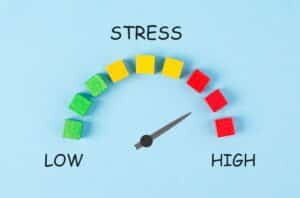Dating offers an exciting opportunity for teens to explore relationships and enjoy memorable experiences. However, for some, dating can be a frightening experience that encompasses fear and violence. Teen dating violence is a hidden epidemic and it’s happening right here in our community. It’s more than just arguments or jealousy. It’s become harmful behaviors that hurt individuals both physically and mentally. Let’s shed some light on what teen dating violence is, how widespread it is in San Antonio, and how… Continue Reading
Why Is My Teen Vaping? The Link Between Vaping & Mental Health
If you’re a parent and you’ve discovered your teen is vaping, you might feel worried, confused, and maybe a bit frustrated. Vaping has become a popular trend among teenagers. And it’s often hard to understand why. This habit might seem harmless to many teens, but it can have serious consequences. Let’s explore what draws teens to vaping, the risks it poses, and what parents can do to help. Understanding this complex issue is the first step in helping your teen… Continue Reading
Creating a Mentally Healthy Classroom: The Vital Role of Teachers in Supporting Teen Mental Health
Anyone who has been a teenager before knows how difficult of a time it can be. Students face academic stressors, friend dramas, and big life changes. On top of all that, many teens wrestle with personal mental health challenges. As the place where students spend a huge chunk of their time, schools and teachers have a big role to play. Teachers are more than educators. They can be lifelines for young students who are going through some of the most… Continue Reading
Understanding Adolescent & Teen Self-Harm and the Pathways to Healing
Seeing a loved one, especially a child, struggle with self-harm can be scary and confusing. As parents or caregivers, it’s natural to feel a rush of emotions and a desperate desire to help. Self-harm is a complex issue. It’s crucial to approach the topic with sensitivity and empathy. Understanding the reasons behind self-harm and recognizing its signs are the initial steps for helping your loved one. We’re here to guide you through understanding self-harm. Gain insight into its causes, signs,… Continue Reading
The Impact of Stress on Adult Anxiety & When to Seek Professional Help
Life is busy. We all face challenges, changes, and sometimes, really tough days. It’s normal to feel the weight of these moments as stress. But sometimes, the impact of stress on adult anxiety can make it much more difficult to handle. Let’s talk about what stress is, its connection to anxiety, and how to manage it. What is Stress? Stress is like an alarm bell. It’s our body’s way of responding to any demand or threat. Imagine you have a… Continue Reading
Why Adolescent Mental Health Issues Can Escalate During Summer & How to Help
Sunshine, long days, and school-free schedules. Summer holds the promise of fun and freedom for many adolescents. But the reality isn’t always so bright. For some, adolescent mental health issues can get worse during summer. Let’s go over why that is and how you can get your child help with these concerns. Understanding Adolescence and Mental Health Adolescence is that unique time between childhood and adulthood. It’s a pivotal phase of development, filled with significant changes and challenges. It is… Continue Reading
Teen Depression and How a Partial Hospitalization Program Can Help
Depression is an emotional and psychological battle that many teenagers face. Navigating the often-turbulent waters of adolescence can be challenging, even more so when coupled with the heavy weight of depression. At San Antonio Behavioral Healthcare Hospital, our mission is to guide and support teens as they find their way out of the shadows of depression and into the light of recovery. A Partial Hospitalization Program (PHP) can be a lifeline for teens grappling with depression. It offers them the… Continue Reading
How Do Social Workers Help Patients and Families in a Mental Health Facility?
In a mental health environment, social workers exist to help patients and families. Mental health social workers can connect people with the right resources, counsel crisis patients, and conduct psychological assessments. Today, they are one of the country’s largest providers of mental health and psychiatric services. Role of a Social Worker in a Mental Health Facility Mental health social workers play a pivotal role in a mental health facility. Their job is to support patients and their families. In addition,… Continue Reading
Signs and Symptoms of Postpartum Depression and When to Get Help
While giving birth to a baby is an exciting time for most families, it can also bring unique challenges. Many women can suffer postpartum depression symptoms. By learning more about the signs of postpartum depression and what to expect, you can take the first step toward getting help. What is Postpartum Depression? Postpartum depression is more than just the “baby blues.” With postpartum depression, moms experience a long-lasting form of depression that typically starts during pregnancy or after giving birth…. Continue Reading
What Are the 6 Types of Anxiety Disorder?
When someone suffers from one of the many types of anxiety, it can make living an average life challenging. There are six types of anxiety disorders. While each of these disorders is treated differently, many treatment options overlap. What is the Difference Between Anxiety and Anxiety Disorder? People experience anxiety and stress during day-to-day life. In typical amounts, some anxiety is normal. However, when someone’s anxiety worsens over time and refuses to go away, they may suffer from an anxiety… Continue Reading
- 1
- 2
- 3
- …
- 11
- Next Page »















